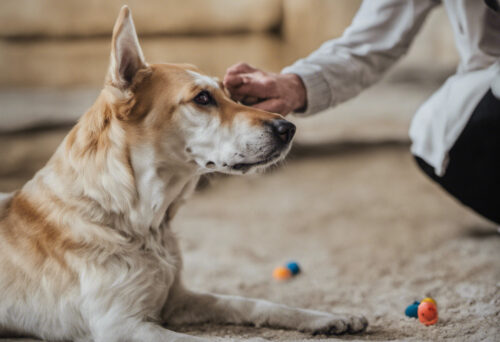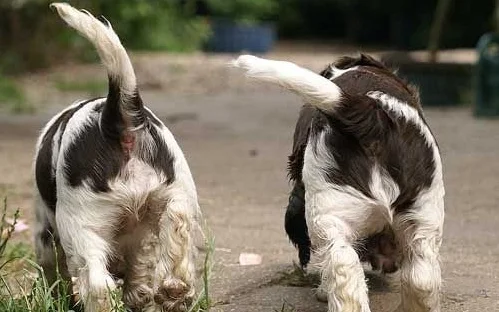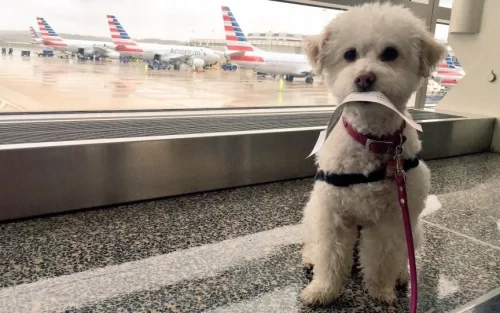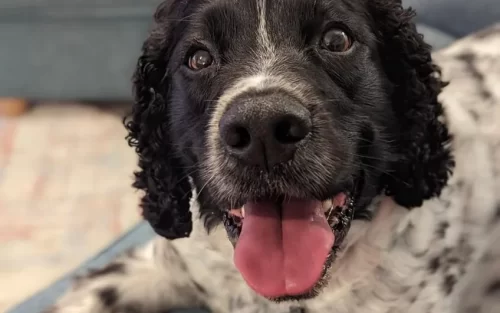Attention span in our four-legged friends- it’s a quizzering and fascinating topic we’re diving into today! Does your canine companion seem to have the focus of an Olympic athlete one moment but turn into Dug from “Up” when they see a squirrel? Don’t fret – you are not alone. Dog owners across the globe grapple with this mystery every day, seeking out tips for improving their pets’ concentration. For many pet parents looking to understand more about how dogs perceive their world or those simply wanting tips on improving training sessions, exploring dog attention spans is essential.
The What and Why Behind Canine Attention Span
If there was ever anything misunderstood compared to elusive Big Foot truthers’, then that would be understanding what influences our pooch’s fluctuating attentiveness levels. In simple terms, unlike human beings who can stay focused despite impending distractions unless extremely interesting (Cough Instagram Cough!) — ours barking besties’ interest meter operates differently; something explained beautifully by scientists at Springer Nature Scientific Journal.
Dog Breeds: Do They Matter?
You may notice differences if you compare Jack Russell Terriers going head-to-head against Companions like Pekingese. dm360 explains, breeds certainly play hand-in-hand determining timelines where your pawed-friend might maintain uninterrupted eye contact before having his perennial butterfly chase.

Cracking the code of canine focus and attention really boils down to understanding their unique life stages, environments, health status, and undoubtedly – breed. What may seem like erratic fluctuations in your furry friend’s ability to engage can actually be deeply entrenched patterns based on an array of factors only now being unveiled through ongoing dog cognition studies.
Puppy Power: Young Minds Learn Best
The old saying “You can’t teach an old dog new tricks” might hold some truth when it comes to a dogs’ attentiveness. Puppies generally have more malleable minds than older dogs but less developed concentration capabilities due prolific sensory distractions around them as revealed by leading pet role-model site, The Bark. On par with human toddlers exploring everything under sun! Forcing much-desired focused behavior too early onto our fur-babies would just leave everyone involved frustrated out while squishing any potential learning fun.
Mature Minded Canines: Ageing Gracefully With Attention Focus Shifts
A natural deceleration occurs within senior pooches’ cognitive abilities which could manifest as decreased alertness or slower response times reported according renowned source, veterinarypartner. An elderly tail-wagger who got distracted forever ago during fetch play lasting ten minutes straight is not forgetting his fundamentals; rather he’s polishing up better suited coping mechanisms for declining resources!
It serves both seasoned boys/girls along fresh-faced owner-role guardians alike respecting animal ambassadors still capable doing wonders given appropriate patience levels—and slight tweaks centered love-n-discover oriented activities getting hardwared!
Remember always practice effective decoding skills behind intricate combination keys forming individualistic fuzzball quirks — patiences keystone best guiding light here will simultaneously paving way towards fruitful bonding ties interplaying positively feeding all throughout lifespan years respective lifetime.
Don’t forget remaining inclusive balanced offering ample opportunities spanning from interactive toys testing paces treadmill others ending flavor-filled well deserved huff puff day breakthrough sessions unwinding curl ups couch lush surroundings comforting warmth signaling imminent nap time closing curtain successful training date without even realizing came quite end stretching further concludes barks beyond+yawn tales etched memory banks leaving wanting.

Foreseeable Factors Influencing Your Furry Friend’s Focus
The environment surrounding your furry friend can indeed have a significant influence on their attentiveness. External distractions, the presence of other dogs or animals, and even human activity levels around them could attract more attention than you trying to teach “Sit!”. An interesting article from PetSafe, elucidates how environmental factors impact pet behavior.
Mental Health Matters Too!
Ailments are not always physical; our pooches too deal with mental health issues like us humans. Anxiety disorders due to traumatic experiences in past situations (abandonment/shelter stays) might lead towards shorter concentration spans requiring extra compassionate tender care as echoed by trusted veteran source, TAMU Vet Med.
Incorporating Stimulation: The Key To Retention & Learning
Treating training sessions as episodes filled with fun including little challenges catering uniquely personal tricks infused short bouts mixed pleasantly surprising rewarding system!
A fascinating contribution made by foremost canine psychologist Dr Stanley Coren clarified correlation between stimulation challenging maneuvers enhancing cognitive capabilities through an enlightening interview aired at Psychology Today.
To Sum It Up
Harnessing combined powers observe-experiment-reinforce selectively targeting specific areas fostering progressive attentive abilities! Results won’t be immediate Patience Perseverance unquestionably humble twin virtues eventually reward progress leaps bounds-gear fixing pressing reset button any misunderstandings misaligned expectations crisscrossed signals amidst quest seek friendship forging stripes setting milestones transforming seemingly daunting roadblocks into enriching vibrant multi-coursed paths.



